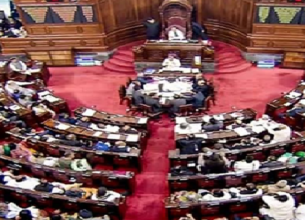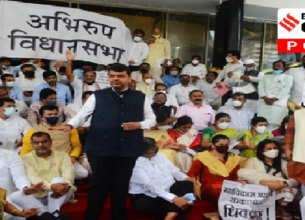PRIVATE MEMBER’S BILL
27, Jul 2019

Prelims level : Polity & Governance- Parliament, State Legislature
Mains level : GS-II- Indian Constitution- historical underpinnings, evolution, features, amendments, significant provisions and basic structure
Context: A private member’s bill to make voting in election compulsory was taken up for discussion in Lok Sabha.
Who Is A Private Member?
- Any Member of Parliament (MP) who is not a Minister in the Union Cabinet is referred to as a private member.
- A private member can be a member of either house of the Parliament (Lok Sabha or Rajya Sabha)
What Is A Private Member’s Bill?
- Parliament’s key role is to debate and make laws. Both Ministers and private members contribute to the law-making process.
- Bills introduced by Ministers are referred to as government bills. They are backed by the Government, and reflect its legislative agenda.
- Private member’s bills are piloted by non-Minister MPs i.e. by a private member.
- Their purpose is to draw the government’s attention to what individual MPs see as issues and gaps in the existing legal framework, which require legislative intervention.
Introduction and Discussion in The House:
- The admissibility of a private member’s Bill is decided by the presiding officers of the Parliament (Speaker in case of Lok Sabha and Chairman in case of Rajya Sabha)
- The Member must give at least a month’s notice before the Bill can be listed for introduction; the House secretariat examines it for compliance with constitutional provisions and rules on legislation before listing.
- Up to 1997, private members could introduce up to three Bills in a week. This led to a piling up of Bills that were introduced but never discussed.
- Therefore, in 1997 the number of private member’s Bills has been capped to three per session.
- While government Bills can be introduced and discussed on any day, private member’s Bills can be introduced and discussed only on Fridays.
- On the scheduled Friday, the private member moves a motion for introduction of the Bill, which is usually not opposed.
- Only a fraction of private member’s bills that are introduced, are taken up for discussion.
- A private member’s Bill that is introduced but not discussed, lapses when Member retires.
- Upon conclusion of the discussion, the Member piloting the Bill can either withdraw it on the request of the Minister concerned, or he may choose to press ahead with its passage.
- In the latter case, the Bill is put to vote and, if the private member gets the support of the House, it is passed.








